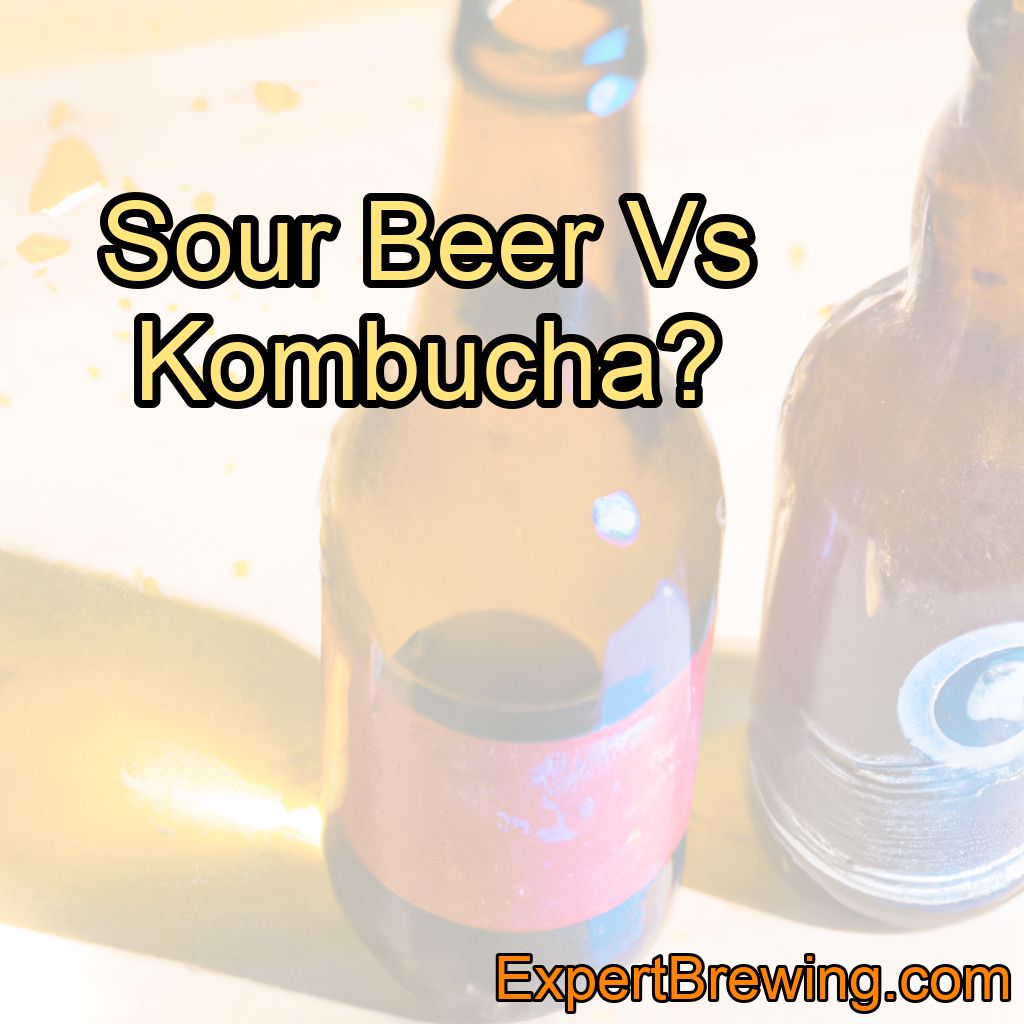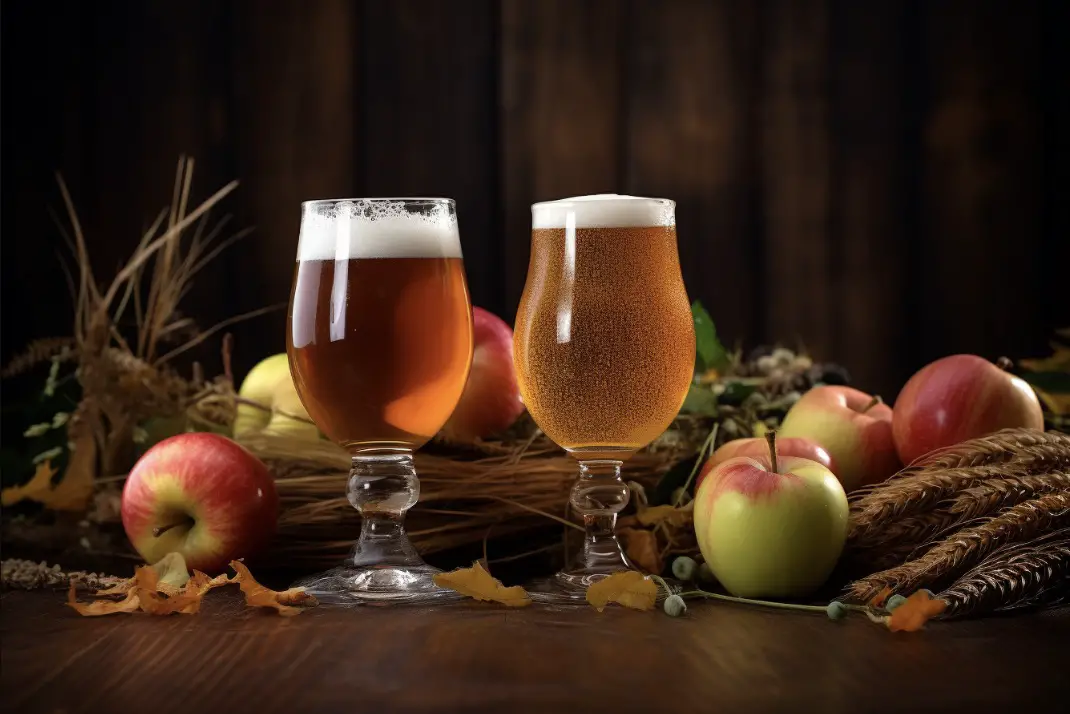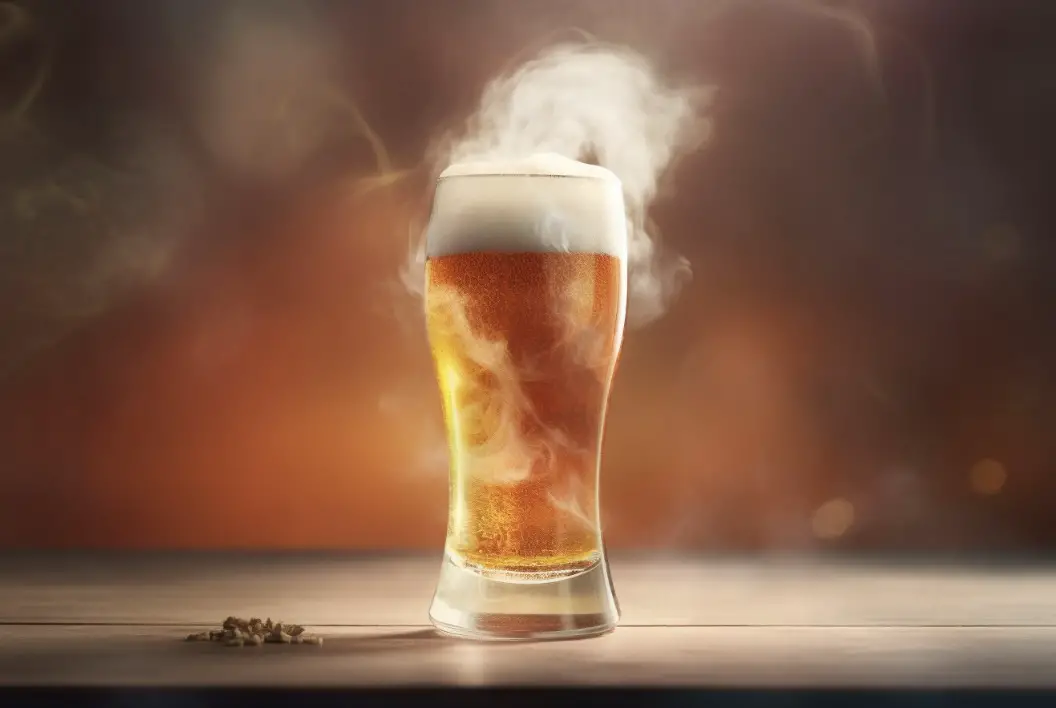Sour beer is a type of beer that has a distinct tart, acidic, or sour taste. This unique flavor profile is achieved through various brewing techniques and the use of specific microorganisms during the fermentation process.
Sour beers can be found in a variety of styles, such as lambics, goses, and Berliner weisses. They have been enjoyed for centuries, with some of the earliest examples dating back to ancient civilizations.
History of Sour Beer
Sour beer has a long and storied history, with its origins tracing back to ancient civilizations in Europe and the Middle East. It is believed that the first sour beers were created by accident, as wild yeast and bacteria found their way into open fermentation vessels, resulting in a sour, tart flavor.
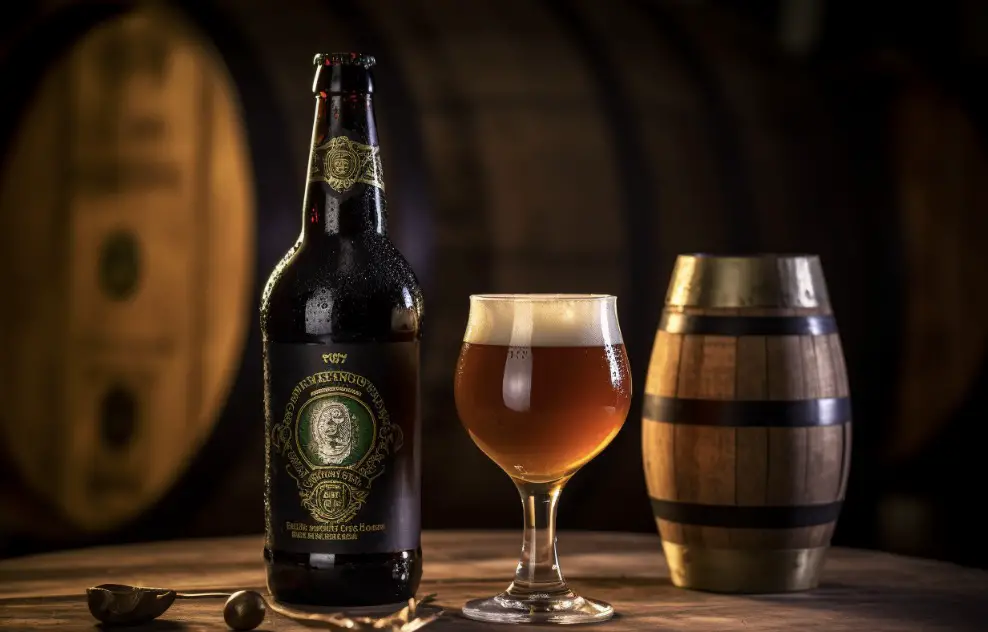
Over time, brewers began to embrace these unique flavors and intentionally cultivate specific strains of yeast and bacteria to produce sour beers.
Brewing Process of Sour Beer
The brewing process for sour beer is similar to that of traditional beer, with a few key differences. The main difference lies in the fermentation process, where specific strains of yeast and bacteria are introduced to create the desired sour flavor.
These microorganisms typically include Lactobacillus, Pediococcus, and Brettanomyces, which are known for their ability to produce lactic acid and other compounds that contribute to a tart, acidic taste.
Some sour beers are also aged in oak barrels, which can impart additional flavors and complexity to the finished product. This aging process can last anywhere from a few months to several years, depending on the desired outcome.
Introduction to Kombucha
Kombucha is a fermented tea beverage that is believed to have originated in China over 2,000 years ago. It is made by fermenting sweetened tea with a symbiotic culture of bacteria and yeast, commonly referred to as a SCOBY (symbiotic culture of bacteria and yeast).
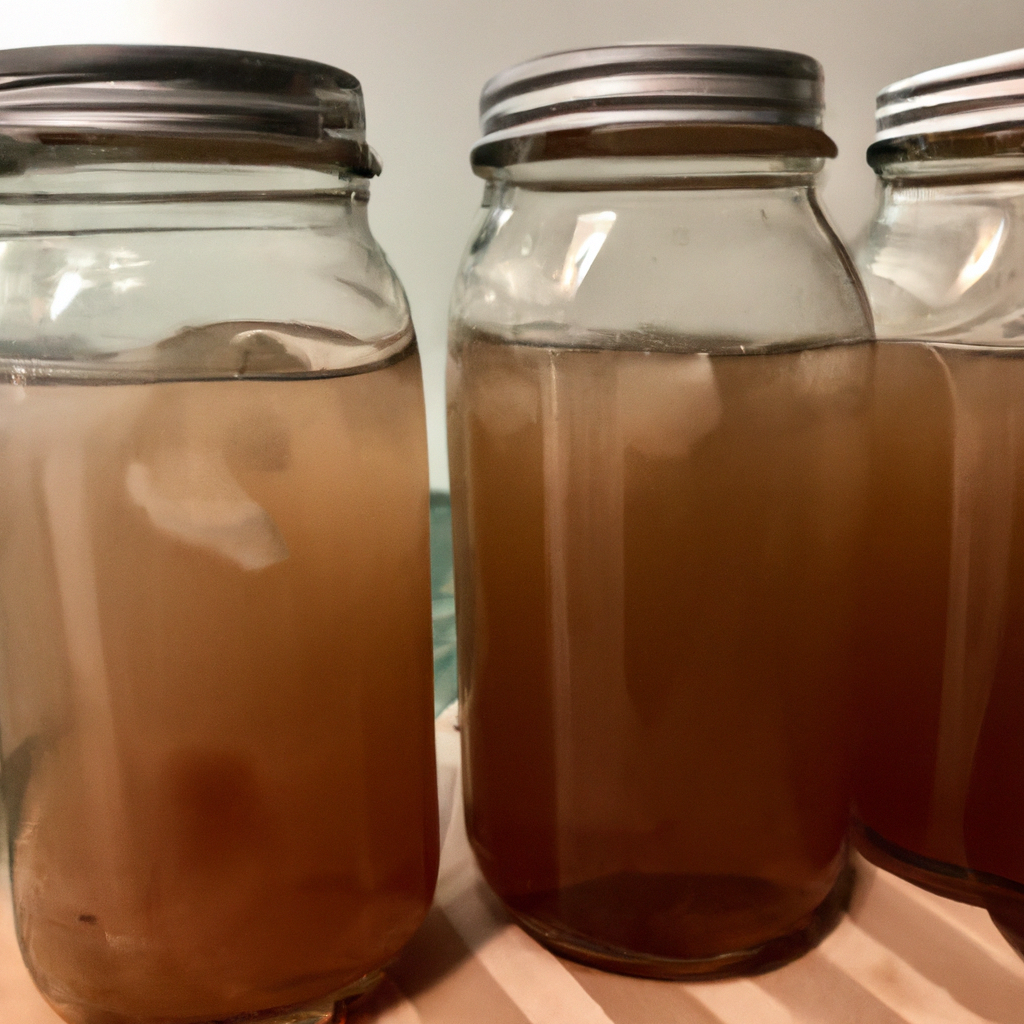
The fermentation process results in a slightly sweet, tangy, and effervescent drink that is touted for its potential health benefits.
History of Kombucha
Kombucha’s history can be traced back to ancient China, where it was known as the “Tea of Immortality” and was believed to have numerous health benefits. The beverage eventually made its way to Russia and Eastern Europe, where it gained popularity as a folk remedy. Today, kombucha is consumed all over the world and is widely regarded as a healthy, probiotic-rich beverage.
Brewing Process of Kombucha
The brewing process for kombucha begins with the preparation of sweetened tea, usually made from black or green tea and sugar. Once the tea has cooled, the SCOBY is added, and the mixture is allowed to ferment in a covered container at room temperature for 1-4 weeks. During this time, the SCOBY consumes the sugar in the tea and produces various organic acids, alcohol, and carbon dioxide, resulting in the characteristic tangy taste and fizzy texture of kombucha.
Comparing Flavor Profiles
Both sour beer and kombucha have unique and complex flavor profiles that can vary greatly depending on the specific brewing techniques and ingredients used.
Sour beers typically have a tart, acidic taste that can range from mildly sour to mouth-puckeringly sour, depending on the style and level of acidity. Some sour beers may also have fruity, funky, or earthy notes, which can be influenced by the specific yeast and bacteria strains used during fermentation, as well as the aging process.
Kombucha, on the other hand, tends to have a slightly sweet, tangy, and effervescent flavor. The taste can vary depending on the type of tea used and the length of fermentation, with longer fermentation times resulting in a more acidic and less sweet flavor. Some kombucha brewers also add fruit, spices, or other flavorings to create unique and interesting flavor combinations.
Health Benefits
Both sour beer and kombucha are believed to have various health benefits, primarily due to their probiotic content and the presence of beneficial organic acids.
Sour beer may contain probiotics (beneficial bacteria) and prebiotics (food for these bacteria) that can promote a healthy gut microbiome. Additionally, some studies suggest that moderate consumption of beer in general may have positive effects on heart health, bone density, and cognitive function.
Kombucha is well-known for its probiotic content, as the fermentation process produces a variety of beneficial bacteria that can support gut health and digestion. It is also rich in antioxidants, which can help protect against oxidative stress and inflammation. Some studies have even suggested that kombucha may have potential anticancer, antimicrobial, and cholesterol-lowering properties.
Availability and Popularity
Sour beer and kombucha have both experienced a surge in popularity in recent years, with more and more breweries and kombucha producers entering the market.
Sour beer has become increasingly popular among craft beer enthusiasts, who appreciate the unique flavors and complexity that these beers have to offer. Many craft breweries now produce a range of sour beers, and they can often be found on tap or in bottles at specialty beer stores and bars.
Kombucha has also seen a dramatic rise in popularity, as more people become interested in its potential health benefits and unique flavor profile. It can now be found in most grocery stores, health food stores, and even some cafes and restaurants.
Final words of advice
As an experienced brewer, I have had the pleasure of experimenting with both sour beer and kombucha production. Here are a few personal insights and pieces of advice for those looking to explore these unique fermented beverages:
1. Start with a tasting: If you’re new to sour beer or kombucha, I recommend attending a tasting event or visiting a brewery or kombucha bar to sample different varieties and styles. This will help you develop an appreciation for the diverse flavors and nuances that these beverages have to offer.
2. Experiment with brewing: If you’re interested in brewing your own sour beer or kombucha, start with a basic recipe and then experiment with different ingredients, fermentation times, and techniques to create your own unique concoctions.
3. Be patient: Both sour beer and kombucha brewing require patience, as the fermentation process can take several weeks or even months to complete. Remember that good things come to those who wait!
4. Share with friends: One of the joys of brewing is sharing your creations with friends and family. Don’t be afraid to share your sour beer or kombucha with others, as it can be a great conversation starter and a fun way to introduce people to these unique beverages.
Conclusion
In conclusion, sour beer and kombucha are both unique fermented beverages with distinct flavors and potential health benefits. While they share some similarities in taste and fermentation processes, they also have their own unique characteristics that set them apart.
Here are ten key facts about sour beer and kombucha to help you better understand and appreciate these fascinating beverages:
1. Sour beer is a type of beer with a tart, acidic taste, while kombucha is a fermented tea beverage with a slightly sweet, tangy flavor.
2. Both sour beer and kombucha are fermented using specific strains of yeast and bacteria.
3. Sour beer can be found in a variety of styles, such as lambics, goses, and Berliner weisses.
4. Kombucha is made by fermenting sweetened tea with a SCOBY (symbiotic culture of bacteria and yeast).
5. The flavor profiles of sour beer and kombucha can vary greatly depending on the brewing techniques and ingredients used.
6. Both sour beer and kombucha may have health benefits, primarily due to their probiotic content and the presence of beneficial organic acids.
7. Sour beer and kombucha have both experienced a surge in popularity in recent years.
8. Tasting events, breweries, and kombucha bars are great places to sample and learn more about these unique beverages.
9. Brewing your own sour beer or kombucha is a rewarding and educational experience that allows you to experiment with different ingredients and techniques.
10. Sharing your sour beer or kombucha creations with friends and family can be a fun way to introduce them to these unique fermented beverages.
FAQs
Is kombucha better than beer?
Kombucha and beer are two very different drinks with different benefits and drawbacks. Kombucha is a fermented tea that contains probiotics and antioxidants, which can support gut health and boost the immune system. Beer, on the other hand, is an alcoholic beverage that can have negative effects on health when consumed in excess, but it also contains some antioxidants and has been associated with reduced risk of heart disease. Ultimately, the “better” choice depends on individual preferences and health goals.
Are sour beers good for your gut?
Yes, sour beers can be good for your gut because they contain probiotics that can promote healthy digestion and boost the immune system. However, it is important to consume them in moderation as they can also be high in alcohol and calories.
How much kombucha is equal to a beer?
There is no definitive answer to this question as it depends on various factors such as the alcohol content of the beer and the fermentation time of the kombucha. However, in general, the alcohol content of kombucha is typically less than 0.5% ABV, while beer can range from 2% to 12% ABV or higher. Therefore, you would need to drink a significant amount of kombucha to equal the alcohol content of even a low-alcohol beer.
Does kombucha taste like a sour beer?
Kombucha and sour beer share some similarities in taste due to their fermentation processes, but kombucha typically has a sweeter taste and a wider range of flavors than sour beer.
Is fermented beer good for gut health?
Yes, fermented beer can be good for gut health as it contains probiotics that can promote the growth of beneficial bacteria in the gut. However, excessive consumption of alcohol can have negative effects on gut health, so moderation is key.
Does kombucha taste like alcohol?
Kombucha has a slightly tangy and sour taste, but it should not taste like alcohol. However, some brands of kombucha may have a small amount of alcohol content due to the fermentation process, but it is usually less than 0.5%.

